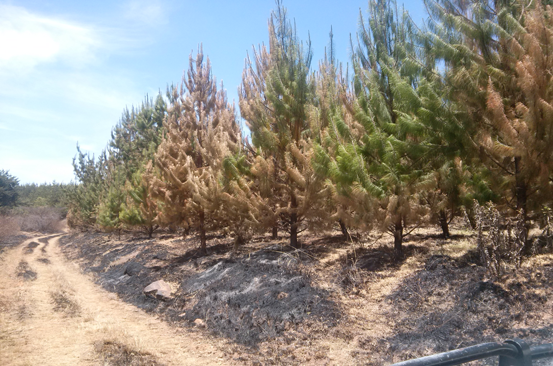 |
NAIROBI, KENYA: The current forest cover stands at 6.99 per cent of the land area. These forests produce vital oxygen and provide homes for people and wildlife. Many of the World’s most threatened and endangered animals live in forests, and people rely on benefits forests offer, including food, water, traditional medicine and shelter.
Currently forests around the country are under threat from forest fires, more than 6,000 hectares of forests have been destroyed by fire amid nationwide drought, jeopardising these benefits. The recent forest fires witnessed in major forests including Maasai Mau, Kimonde, Menengai, Mau, Koibatek and Taita Taveta forest are due to community error as most of them occurred on forest adjacent to community farm lands. These recent massive forest fires have done major damage that won't heal on its own. This impacts on people’s livelihoods and threatens a wide range of plant and animal species. Thousands hectares of forest have been lost this season, and this calls for proper audit by the Kenya Forest Service (KFS).